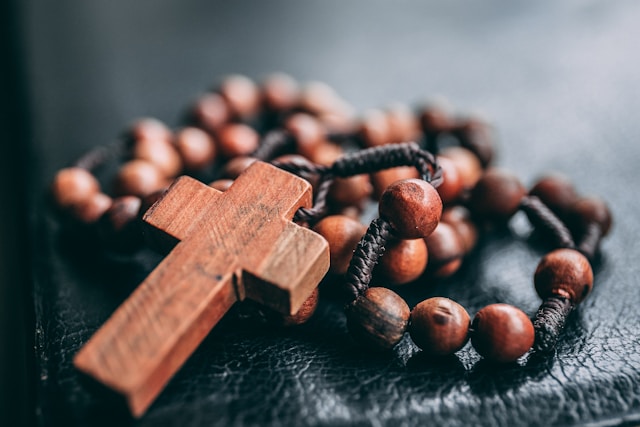Is Hallelujah Even A Religious Song?
Leonard Cohen’s masterpiece “Hallelujah” echoes through the halls of concert theaters, within the somber walls of funerals, and even amid the joyous celebrations of weddings. It has woven itself into the fabric of modern culture, transcending its initial reception to become a beloved anthem of human expression. But as its strains float towards the heavens, a pressing question arises: Is Hallelujah A Catholic Hymn?
The Origin of “Hallelujah”
The year was 1984 when Leonard Cohen graced the music world with the song “Hallelujah.” Born from Cohen’s poetic brilliance, anchored in his deep voice and fleeting guitar strums, “Hallelujah” was, at its core, an artist’s meditative exploration of love and despair. Cohen, a Jew, infused the song with a mosaic of biblical imagery, yet it was never bound to a single interpretation or purpose.
Is Hallelujah A Catholic Hymn?
Fast forward, and “Hallelujah” has adorned itself with a quasi-religious aura. Despite this, the song has never been etched into the annals of Catholic hymnody. It lacks the ecclesiastical endorsement that characterizes the hymns sung from the pews and by choirs within Catholic sanctuaries.
The Religious Context of “Hallelujah”
The biblical references in “Hallelujah” are undeniable. From King David’s lyrical lament to Samson’s tragic tale, Cohen’s lyrics resonate with the cadence of ancient scriptures. Yet, these tales are a vehicle for a broader odyssey through love, betrayal, healing, and spirituality.
The word “Hallelujah,” a heartful exclaim that punctuates praise in many Christian traditions, is as versatile as the song itself. It is at once an expression of worship, sorrow, and joy—a triumvirate that perhaps aligns with the trinity of emotions one encounters in life.
“Hallelujah” in Catholic Worship
Does its occasional presence in Catholic ceremonies then render “Hallelujah” as liturgical music? No. Its appearance is often personal choice, not doctrinal inclusion. “Hallelujah” may augment the spiritual ambiance, but it does not exist within any official Catholic hymnal nor partake in the liturgical rigors set by the Vatican.
There Are Other Catholic Hymns That Were Also Adopted By The Catholic Church
While “Hallelujah” may not be a Catholic hymn, there are many beloved songs that the Church has adopted into its liturgical repertoire. From traditional chants like “Ave Maria” and “Panis Angelicus” to modern songs like “Here I Am Lord” and “Be Not Afraid,” these hymns hold a special place in the hearts of Catholics worldwide.
Clarification: So, Is “Hallelujah” A Catholic Hymn?
The answer is no. It may evoke spiritual sentiments and be used in Catholic ceremonies, but “Hallelujah” does not hold the official designation as a Catholic hymn.
However, it remains a powerful and timeless piece that speaks to the human experience and continues to find new meanings and interpretations with each generation.
And perhaps, that is the ultimate testament to its enduring beauty and significance in our world today.
So, whether you sing it as a Catholic hymn or simply as a moving piece of music, let the words “Hallelujah” uplift your heart and soul in their own unique way. So, we can conclude that while “Hallelujah” may not be a Catholic hymn, it has undoubtedly become a spiritual anthem for many. So, let us continue to embrace its message and power with open hearts and minds.
Interpretations and Adaptations
The beauty of “Hallelujah” lies in its universality. From Jeff Buckley’s haunting rendition to k.d. lang’s stirring performance, “Hallelujah” has been reimagined across genres and beliefs. It reaches out to the spirit, whatever form one’s spirituality might take, and for some, this includes within their practice of Catholic faith.
Conclusion
So, Is Hallelujah A Catholic Hymn? While not traditionally nor officially. “Hallelujah” has blossomed into a contemporary spiritual touchstone, and perhaps that is the true miracle of the song. It is a testament to music’s power to transcend boundaries, whether they be religious, cultural, or personal. As we ponder its place within the grand tapestry of worship and expression, let us celebrate the communal solace that “Hallelujah” has brought to so many, inside and outside the walls of cathedrals.
Additional Resources and References
For those eager to delve deeper into the history of “Hallelujah” or explore its varied uses in religious and secular settings, a wealth of resources is available. Listeners may find a particular resonance in recordings by John Cale or Rufus Wainwright, while literary analyses detail the song’s complexity and breadth of influence across different media. Each perspective offers a new layer of appreciation for this timeless piece that Leonard Cohen graced us with—a song that will continue to be interpreted and cherished for generations to come.


